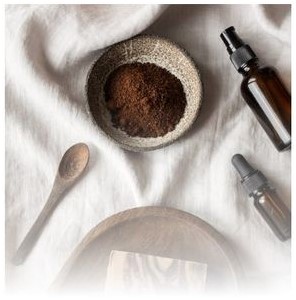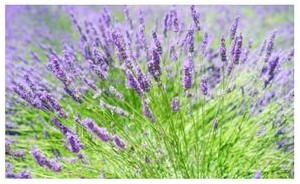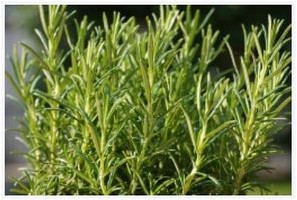
There are many benefits of using natural home remedies instead of prescription, or even over the counter drugs. Some of the benefits are:
• They are inexpensive. Compared to prescription drugs especially, home remedies are usually cheaper.
• They tend to have fewer side effects. Again when compared to drugs, properly prepared natural remedies usually have fewer and much less severe side effects.
• They have been proven by years and even centuries of “folk medicine” use.
• They are designed to treat the underlying cause of an illness and not just the symptoms.
• They often have many overall health and nutritional benefits.
• They may strengthen your immune system.
• They are easy to find in supermarkets, health food stores, or online.
This article will describe several items that are useful for natural home remedies.

Lavender Herbs Benefits
Lavender comes from northern Africa and the Mediterranean mountains. It’s very popular and can be used in air fresheners, in aromatherapy candles, and for herbal remedies.
It’s used in beauty products, lotions, creams, capsules, topical oils, essential oils, and in teas.
Lavender may help with:
• Relieving Stress
You can add a few drops of lavender oil to an aromatherapy diffuser and just breathe in the pleasant fragrance whenever you’re feeling anxious or stressed out.
You can also add the oil to a warm bath to unwind and relax as you soak for awhile. In fact, in ancient Greece, Rome, and Persia, it was used as a bath additive. The people in these cultures believed it helped purify their mind and body.
The scent may also help to relieve asthma symptoms.
• Hair loss
People with a condition called alopecia areata have used lavender to stimulate hair growth. You should mix the lavender with olive oil and/or rosemary and thyme oils, and gently rub it on your scalp.
• Anxiety
People in studies reported lower levels of anxiety using lavender oil capsules. It’s also been found to help with anxious dental patients if used right before a dental visit.
• Skin Problems
If you mix lavender oil with a carrier oil like olive or thyme oil it can help with skin conditions like psoriasis, dermatitis, eczema, rashes, itching, and even insect bites and bee stings.
• Insomnia
Research has found that breathing lavender’s aroma can help you sleep better. The best way to do this is to burn a lavender infused candle in your bedroom.
Some people will add a few drops of lavender oil on a cotton ball and place it near their pillow. The scent should have a relaxing effect and help you sleep.
Another method is to mix mix a few drops of lavender oil with water and make a spray that used to lightly spray your bedsheets so the scent is on the bed.
Lavender Tea
The are several varieties of lavender that can be used for tea. You can use already prepared tea bags or make your own mixture by adding 1 teaspoon of dried lavender flowers in to a tea strainer spoon and allow the herb to steep for 5 minutes.
The tea’s effects are similar to using oil. The smell and taste will relax you and take your stress away.
Lavender is definitely something you should include in your natural home remedies. It will help keep you calm in this stressful, chaotic world.
Note: Only take lavender tea, capsules, etc. internally. You shouldn’t drink or swallow products like “essential lavender oil” as it can be toxic – only use it as directed.

Chamomile Benefits
Chamomile has been used for thousands of years. It’s considered very safe and is usually taken as a tea. There are many conditions it’s good for, such as:
• Relaxation and Sleep
The most common use of chamomile is to help promote sleep. Several studies have found that it helps people relax. One study found that people drinking chamomile tea for 4 weeks fell asleep faster slept better. Some research suggests that chamomile binds to benzodiazepine receptors, just like prescription tranquilizer drugs like Librium and Valium do.
• Digestive Problems
Chamomile may reduce the risk of certain gastrointestinal conditions. It aids digestion, may protect the stomach lining, and has anti-inflammatory properties. It’s also been used to treat nausea and gas
• Reducing Menstrual Pain
Studies have shown that chamomile tea can reduce the severity of menstrual cramps. Women in the studies also said they had less stress and anxiety during menstrual periods.
• Treating Skin Conditions
A chamomile extract applied directly to a wound was shown to assist healing. Chamomile ointments may also help with mild inflammatory skin conditions and eczema.
• Cancer Prevention and Treatment
Some studies suggest that chamomile tea may prevent cancer cells from developing, but the research is inconclusive.
• Osteoporosis
The estrogen hormone in women often causes them to develop osteoporosis (progressive loss of bone density) after menopause. Chamomile tea may combat against this osteoporosis.
• Other Issues
Chamomile may also generally help with inflammation, diabetes and high blood pressure, cold symptoms, muscle spasms, canker sores, and hemorrhoids.

What Is Echinacea Good For?
Echinacea is a Native American medicinal plant. It has a large cone shaped seed head with prickly scales that can be seen in the photo above.
It’s probably been used for hundreds of years for many different ailments including infections, wounds, malaria, scarlet fever, syphilis, blood poisoning, diphtheria
Other Uses:
• Treating cold and flu. It can reduce the duration of your symptoms and help with cough, sore throat and fever.
• Helps your body fight infections and boosts your immune system.
• Combats viruses and bacteria.
• Anti-inflammatory properties.
• Anti-cancer properties
• Helps lower blood pressure
• Helps with anxiety
• Great for wounds, sores, and/or insect bites and stings.
To treat these just soak the affected area in a tub of lukewarm water that has a few drops of echinacea tincture. You can also use a tea bag that was used for echinacea tea.
The tincture can also be placed directly on the affected area.
Using Echinacea
One of the most common and popular ways to take echinacea is making a tea. The tea comes in different flavors and gets very good reviews.
Drinking echinacea tea is good for combating hay fever and sinus problems. For conditions such as athlete’s foot, ear infections, urinary tract infections, and vaginal yeast (candida) infections, you should probably seek out a professional herbalist’s advice on the best best form of echinacea to use.
Are There Side Effects?
Side effects with echinacea are very rare. If you’re on any medications, especially immunosuppressants, antibiotics, or birth control medication, consult with your doctor before using it.
As for tinctures, creams, and ointments, start with a small amount to make sure there’s no allergic reaction. When drinking a tea it’s better to take it with food and not on an empty stomach. Try 4-5 tablespoons and wait awhile before drinking a full cup, to be sure there are no negative reactions.

Calendula Benefits
Calendula is a bright yellow plant that is native to southern Europe and Asia. It’s also called a marigold plant. The beautiful orange/yellow flower that you see in the photo above is actually the medicinal part of the plant.
Those colorful petals are full of flavonoids. They are the same components found in fruits and vegetables that have anti-inflammatory, anticancer, antidiabetic, neuroprotective, anti-thrombogenic properties.
It’s native to the lower forty-eight states of the United States and Canada. The plant is fairly easy to grow. It just needs full sun and a fertile, well-drained soil. You can plant it in different types of gardens and flower beds, as well as pots or containers.
Calendula is so useful for skin conditions that some cosmetic companies are marketing expensive skin care products with it. However, it’s inexpensive when using it in your natural home remedies.
You can make your own lotion by mixing the [calendula flowers] in an oil such as olive oil or coconut oil. It also comes in tea, tincture, or capsule form.
Uses For Calendula
• Treating wounds and skin conditions
It’s been used in creams for vaginal yeast infections, diaper rash, and foot ulcers from diabetes, as well as other skin conditions. Calendula ointment used on women’s cesarean scars resulted in a faster healing time, and less redness and swelling.
Add calendula tincture to aloe vera gel and apply this mixture to wounds, cracked/chapped skin, sunburn, and other skin problems.
• Treating inflammation and pain – try a cup of calendula tea.
• Treating radiation dermatitis, which is skin irritation that comes after radiation therapy.
• Treating indigestion – add 2 teaspoons of dried calendula flowers into your strainer spoon and let it steep for 10 minutes in a cup of boiling water.
Excerpts of actual statements from customers reviewing calendula tincture:
“… help with the effects of radiation after breast cancer lumpectomy.”
“… recently had some cold sores and put some in a small amount of Vaseline and it cut the healing time in half.”
“50 drops into a large jar of Vaseline and voila! Significant decrease in healing time of cuts/scrapes etc.”
“Used to heal feline toenail infection.”
“A few drops added to water makes a great mouthwash. Helpful for any kind of mouth sores – applied with a Q-tip.”
“… use daily following my radiation treatments for breast cancer.”
“Only thing that seemed to work on metatarsalgia.”
(Metatarsalgia (met-uh-tahr-SAL-juh) is a skin condition where the ball of your foot becomes inflamed and painful. It could come from athletic activities involving running or jumping. In other cases it might be caused by someone having a foot deformity, improper fitting shoes, etc.)

Rosemary Herb Benefits
Rosemary is a herb native to the Mediterranean and part of the mint family. Like other herbs in this article it’s available in leaves, essential oil, and extract. It’s used in cooking, but has many health benefits. It’s rich in antioxidants and has antimicrobial properties, so it is effective at treating many conditions that are caused by bacteria.
It’s used for:
• Skin Conditions
Use it for rashes, insect bites, dandruff, and fungal infections. If rosemary oil is used don’t apply it directly to your skin. Dilute it with olive oil or jojoba oil first.
By gently rubbing some diluted rosemary oil on the affected area and leaving it for a while, you can help alleviate the pain and irritation.
To treat dandruff, you’ll need to boil 3 cups of water and add 2 teaspoons of dried rosemary leaves in to the water. Stir well and allow to steep for 10-15 minutes.
Once the mix is cool, strain it into a spray bottle. Generously spray your scalp with this rosemary water until your scalp and hair are wet. Then wait for 3 minutes before washing your hair and scalp.
• Improving Memory and Concentration
Tt may improve your brain function. Add a few drops of rosemary oil to an aromatherapy diffuser. You could also try a rosemary scented candle.
An alternative to using oil is brewing a cup of rosemary tea. Just boil a cup of water and add a teaspoon of rosemary leaves into the water and allow it to steep for 10 minutes. Strain the mix, add a dash of honey and sip the rosemary tea.
The tea will not only feel refreshing, but also give you the benefits of rosemary, such as: improving blood circulation, boosting immunity, eliminating cell damage caused by free radicals, preventing heartburn and so on.
• Treating Aches and Pains
Dilute rosemary essential oil with a carrier such as olive oil. Gently massage it on your skin to stimulate the muscles and reduce inflammation.
Alternatively, you may add about 8 drops of rosemary oil to a hot bath and soak in it for a while. This will allow the rosemary oil to cover a wider surface area on your body. It’s more helpful to use this method if larger muscles such as your back muscles or thigh muscles are aching.
• Treating Joint Inflammation
Rosemary has two compounds called carnosol and carnosic acid. They may help reduce inflammation in joints, muscles, and blood vessels.
Rosemary also has many antioxidants that help to boost your immune system.
• Stimulating Hair Growth
In a study, people with alopecia (a disorder causing hair to come out in patches) massaged their scalps every day with an oil mixture as described above. In 7 months there was a significant hair regrowth.
• Circulation Problems
If you have cold hands and feet due to poor circulation, a rosemary oil mixture may help expanding your blood vessels, and thereby warming the blood iin your fingers and toes.
• Stress Relief
It may have a calming effect on people with depression and anxiety. In a study, people breathing rosemary oil from an inhaler, had their pulse decrease by about 9%.
It’s also been found that rosemary decreases the stress hormone cortisol. High cortisol levels can cause mood swings, insomnia, and a suppressed immune system.
• Lowering Blood Sugar
The carnosic acid and rosmarinic acid in rosemary have insulin-like effects on blood sugar. They increase the absorption of glucose into muscle cells, which lowers blood sugar.
• Vision and Eye Health
Rosemary tea may reduce the risk of macular degeneration, which affects older adults especially, causing distortion and loss of vision.
• Repelling Bugs
It’s been sprayed on plants to reduce insects. A solution of about 10% rosemary oil was used to repel mosquitoes, as well as black-legged ticks.
Summary:
This herb has many benefits. You may wish to do more research on it and see how it can benefit you. Do include rosemary in your cooking or use the oils in your home remedies. You’ll be amazed at the effectiveness of this herb.
![]()
